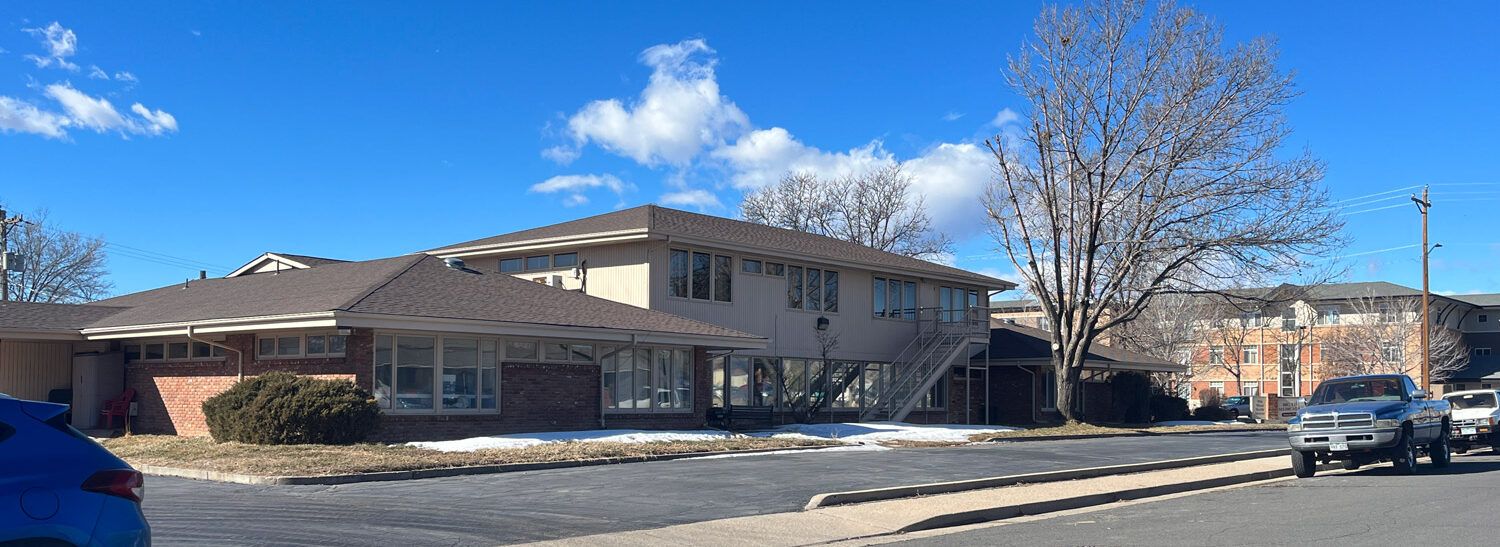Loveland council delays vote on west-end rezoning

LOVELAND – The clock ran out on the Loveland City Council late Tuesday night as it considered a contentious proposal to rezone four properties on the historic west end of the city’s downtown area from low- to high-density residential.
Facing a chamber packed with dozens of opponents of the plan that has divided its members and pitted the majority of the city’s Planning Commission against its persistent Development Services department, the council voted 5-2 to cut off debate on first reading of the issue at 11 p.m. and “pick up where we left off” at a meeting on July 18.
Mayor Jacki Marsh had recused herself from the rezoning issue because she said she “became familiar with” one of the four properties involved “a couple of years ago,” and Mayor Pro Tem Don Overcash was absent on Tuesday night.
SPONSORED CONTENT
Business Cares: May 2024
As Mental Health Awareness Month unfolds in Colorado, it serves as a reminder of the collective responsibility to prioritize mental well-being.
At issue is an area of about 1.5 acres along Sixth Street between Douglas and California avenues – which Planning Commission chair Lori Goebel described Tuesday as “a little postage stamp in a sea of R1E” – that includes three nonconforming uses: the Courtyard Assisted Living center, a four-unit townhouse and a medical office building.
Because that office building at 914 W. Sixth St. has been vacant for at least 10 years, principal city planner Kerri Burchett said it lost its “nonconforming use” designation and its owner, Barry Floyd, who bought the building in 2015, couldn’t renovate or sell it unless it were rezoned to “R3E” high-density residential. That category allows several uses including multifamily housing as well as medical office buildings and assisted-living centers, although those plans would have to be presented at a neighborhood meeting.
Burchett said Floyd has received a letter of intent from Courtyard’s owner to buy his building and convert it into a memory-care center.
Goebel and commissioner Olesia Paul had voted in favor of the rezoning plan at the Planning Commission’s April 25 meeting. Goebel noted then that investing in Loveland’s older neighborhoods is part of the city’s comprehensive plan, and Paul, citing a widespread housing shortage, added that “we are changing. We need more places to put more residents here.” However, the other five commissioners were swayed to vote against the plan by testimony from a roomful of the area’s neighbors, including members of a group calling itself the West Endies, which complained that the zoning change could damage the character of their peaceful neighborhood by opening the door to potential development that could bring more traffic, noise and safety issues.
Despite the commission’s 5-2 recommendation that council members deny the rezoning, Burchett and her Planning Services team chose to take their argument to the full City Council and on Tuesday offered an elaborate presentation that attempted to rebut neighbors’ concerns. They said the rezoning request by the city doesn’t just affect Floyd’s property and that it had the voluntary support of the other three property owners within the proposed rezone area. The objective, they said, is to align the zoning with the established uses and infrastructure in the area that had constituted “nonconforming uses” since 1968, when a previous city council rezoned the area to “R1E” low-density residential.
Responding to councilor Dana Foley’s question about why city staffers viewed the 1968 decision as a mistake, Burchett said that action “wasn’t a voluntary zoning effort. The city used governmental power and blanket rezoned property without consulting property owners.”
Councilor Andrea Samson, who chaired this portion of the council meeting in Marsh’s and Overcash’s absence, asked why any of the four individual property owners couldn’t ask for the rezoning themselves if the city rejects the current plan. Burchett responded that they could, “on a piecemeal process,” but that such actions might constitute the “spot zoning” that is illegal under Colorado law and that opponents have contended covers Burchett’s team’s proposal as well.
As the period for public comment began, Floyd — who was praised by all sides of the debate for his 2006 purchase of the historic Feed and Grain building that eventually led to its redevelopment as the Artspace project — said he was “trying to do what’s best for the neighborhood” and didn’t want to tear his building down.
“The only constant right now is change, and I hope to make a change for good,” he said. Its use as a memory-care facility, he added, “is not high density; it’s mid density.”
Two other residents spoke up for Floyd, including Olivia Lowe, who said “he just wants to do what’s right” and pointed out that he has had to decline three offers to buy the building because of the zoning issue.
However, dozens of West Endies and their allies returned in force, many carrying “No Rezone” placards. They asked why the city was pushing a plan that could give developers a “blank check.” Some said Floyd should have sought the rezoning himself with an officially submitted business plan — or simply asked for a variance from the current zoning so that “the applicant would pay, not taxpayers.” Attorney Mike Foote, a former state representative and senator, outlined what he said were legal problems with the city’s request.
One of the opponents, Bill McCreary, said he was a 70-year resident of the neighborhood and contended that when Floyd bought the building on speculation, “Barry bet on a lame horse.” McCreary said he was “befuddled that the city is driving this project. This whole thing has been sour from the beginning.”
Councilor Steve Olson, who defended Floyd’s rights as a property owner, asked each opponent “What would you be OK with” as a use of the vacant office building. Some said the memory-care center would be fine under current low-density zoning rules, while others suggested a child-care center, a beauty salon, or a “home for unaccompanied youth” who residents of the nearby Hillcrest senior center could visit and mentor. One said the building would be an ideal place for “direct physician care,” a current movement that gives family physicians an alternative to fee-for-service insurance billing, typically by charging patients a monthly, quarterly, or annual fee that covers all or most primary-care services.
Just before the 11 p.m. deadline for suspending the debate, one opponent declared, “I don’t trust government. Never have, never will. Bring me a plan.”
LOVELAND – The clock ran out on the Loveland City Council late Tuesday night as it considered a contentious proposal to rezone four properties on the historic west end of the city’s downtown area from low- to high-density residential.
Facing a chamber packed with dozens of opponents of the plan that has divided its members and pitted the majority of the city’s Planning Commission against its persistent Development Services department, the council voted 5-2 to cut off debate on first reading of the issue at 11 p.m. and “pick up where we left off” at a meeting on July 18.
Mayor Jacki…
THIS ARTICLE IS FOR SUBSCRIBERS ONLY
Continue reading for less than $3 per week!
Get a month of award-winning local business news, trends and insights
Access award-winning content today!


